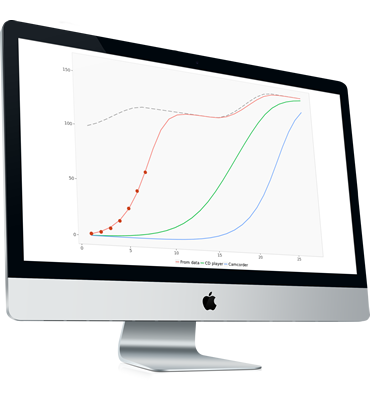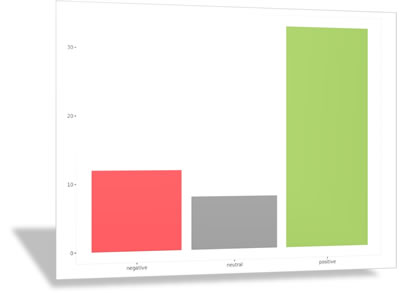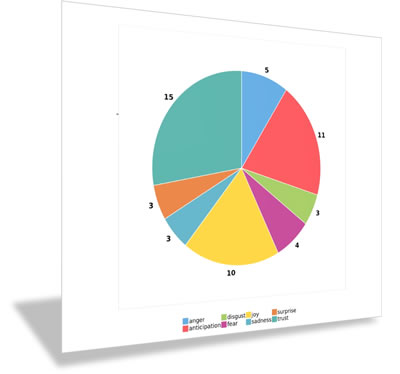
Robinhood case study (sentiment)
Planning Robinhood’s Response to the GameStop Debacle (sentiment analysis) Try it! Set in 2021, the Robinhood case tracks the sentiments expressed via Twitter as Robinhood (the
Accessibility Tools

Sentiment analysis refers to a body of computational techniques to extract and categorize affect (e.g., positive or negative states) and emotions (e.g., joy, surprise) contained in text, audio, and other types of data. It is used by businesses to analyze and understand the affect and emotions embedded in social media content such as comments, tweets, posts and blogs about their brands, products and services.

A word cloud shows the relative frequencies of words within a corpus of textual data (e.g., user posts). Words with higher frequencies of occurrence in the corpus are placed at the center of cloud and are bigger or bolder.

Valence analysis uses a dictionary to determine the polarity of words, sentences, and the entire corpus by assigning them to various affective states such as “positive,” “negative,” and “neutral.” A textual segment (e.g., a post) with more positive words than negative words is classified as a positive segment.

Emotion analysis uses a dictionary to classify textual segments into six emotion categories – anger, disgust, fear, joy, sadness and surprise.

Text from one or more web pages can also be used as a corpus for sentiment analysis. Each sentence in a corpus is considered as a post.

Planning Robinhood’s Response to the GameStop Debacle (sentiment analysis) Try it! Set in 2021, the Robinhood case tracks the sentiments expressed via Twitter as Robinhood (the

Mobile Games (sentiment analysis) Try it! Set in 2014, Mobile Apps is a case about the mobile app games market. It requires the application of

© DecisionPro, Inc. 2015-2024. All rights reserved. Enginius ® is a registered trademark of DecisionPro Inc.